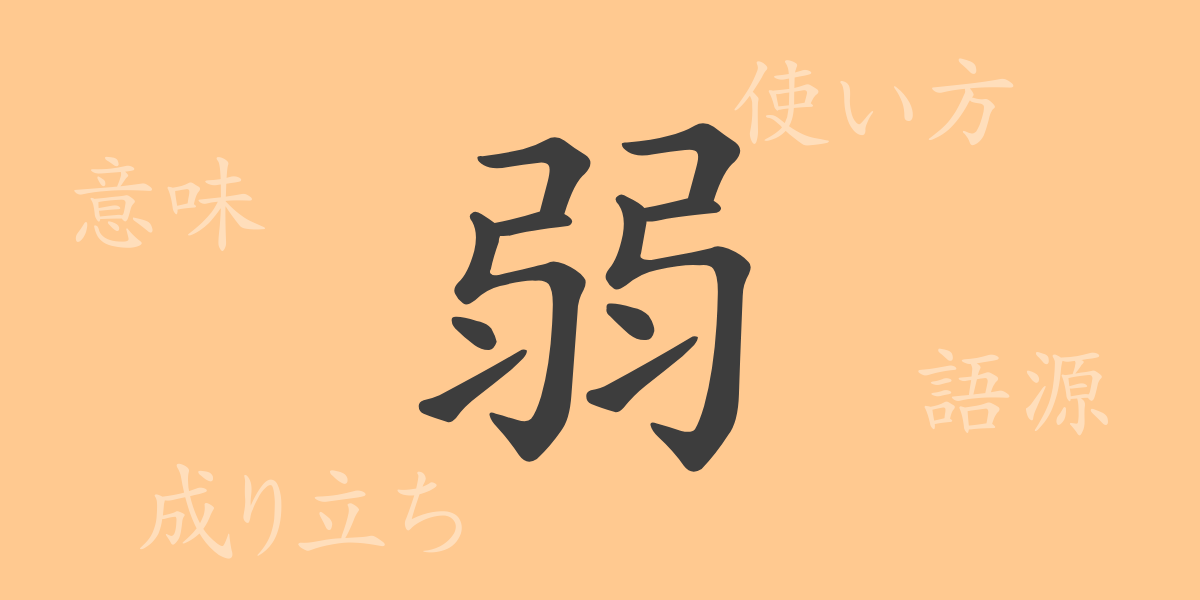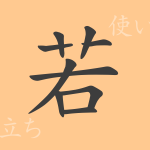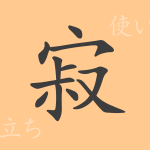Each Japanese character has a history and possesses the power to symbolize culture and emotions. The kanji “弱(よわ)” is no exception. Frequently used in daily life, this kanji’s form and meaning have evolved over time, providing a glimpse into the depth of the Japanese language. In this article, we will explore the origins, meanings, usage, and readings of “弱(よわ),” along with its associated idioms and phrases.
Origin of 弱(よわ) (Etymology)
The kanji “弱(よわ)” originated in ancient China as a character representing the weakness of a bow’s strength. The first appearance of this character dates back to the oracle bone script from around 1200 BCE. Its shape derived from a pictogram depicting a bent bow. Over time, the character’s form has evolved into its modern shape, but its fundamental meaning has remained consistent, conveying concepts of “weakness” and “inferiority.”
Meaning and Usage of 弱(よわ)
“弱(よわ)” means “lack of strength” or “inferior,” commonly describing a state of low physical strength, ability, or condition. It is also used metaphorically to indicate a lack of willpower or susceptibility to influence. As an adjective and verb, it appears in expressions such as “弱る(よわる)” (to weaken) and “弱まる(よわまる)” (to diminish).
Readings, Stroke Count, and Radical of 弱(よわ)
Let’s examine the readings and structural features of the kanji “弱(よわ).”
- Readings: On’yomi (音読み) is “ジャク,” and kun’yomi (訓読み) includes “よわ.い” (weak), “よわ.る” (to weaken), “よわ.まる” (to diminish), and “よわ.める” (to weaken something).
- Stroke count: “弱(よわ)” consists of 10 strokes.
- Radical: The radical of this kanji is “弓(ゆみへん)” (bow).
Idioms, Phrases, and Proverbs Using 弱(よわ)
There are numerous idioms, phrases, and proverbs in Japanese that include the kanji “弱(よわ).” Each of these expressions carries rich meanings. For instance, “弱肉強食(じゃくにくきょうしょく)” refers to the natural law of “the strong prey upon the weak.” “弱気(よわき)” describes a lack of confidence or a timid attitude. “弱点を突く(じゃくてんをつく)” means “to attack someone’s weak point.” These expressions play a vital role in enriching the nuances of the Japanese language.
Conclusion on 弱(よわ)
The kanji “弱(よわ)” has a profound history and meaning that extends far beyond its simple form. Its use in Japanese is extensive and varied, appearing in many forms throughout language and communication. Understanding “弱(よわ)” provides insight into how this character functions within the Japanese language and highlights the cultural and philosophical background embedded in everyday expressions. Delving into the 常用漢字(じょうようかんじ) (common use kanji) like “弱(よわ)” is a step toward deeper comprehension of the culture and ideas behind the language.

























